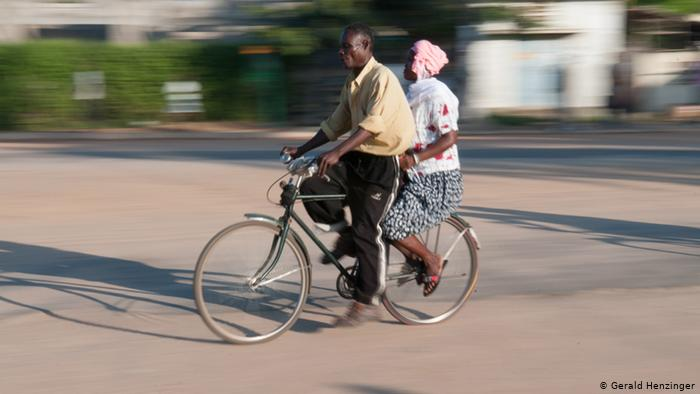Ukraine appoints new government in biggest wartime overhaul
Mozambique: Bicycle-taxi drivers exposed to coronavirus risk

File photo: DW
Health workers and the drivers of bicycle-taxis are the professional groups most exposed to the risk of contamination by the Covid-19 respiratory disease in the city of Quelimane, capital of the central Mozambican province of Zambezia.
This is one of the preliminary results of an epidemiological survey, announced in Quelimane on Thursday by the deputy general director of the National Health Institute (INS), Eduardo Samo Gudo.
“This survey is very important because it allows us to take a real photograph of the epidemiological profile of the coronavirus in Quelimane from various perspectives, for example, the main foci of transmission, and the professional groups who are most exposed”, he said.
Like the earlier surveys in Maputo and in the northern cities of Nampula and Pemba, this survey used a simple blood test, which gives results after 10 or 15 minutes. The test does not show whether the person concerned currently has Covid-19 – but it does show the presence of antibodies to the virus, indicating that the person has been in contact with the disease in the recent past.
Assuming that the sample has been well constructed, this method gives a reasonably accurate picture of the spread of the virus through the city.
Samo Gudo said it was interesting to note from the survey that the Quelimane neighbourhoods with the greatest exposure to the coronavirus are the relatively small residential units. He believed this reflected the intensive work undertaken by the health authorities to control the transmission of the virus in the larger, more populous neighbourhoods.
The INS was also pleased at the low prevalence of the coronavirus found among elderly people in Quelimane.
“Here we found a prevalence among the elderly of 0.4 per cent”, said Samo Gudo. “This is the lowest prevalence so far found in Mozambique. This, once again, demonstrates the excellent work that has been done to protect this stratum of society, which is a high risk group for developing serious illness from the virus”.
But he was concerned at the high percentage of bicycle-taxi drivers who have the coronavirus antibodies in their blood. No fewer than nine per cent of this professional group had been exposed to the virus.
The widespread use of bicycles as taxis is one of the peculiarities of Quelimane. Samo Gudo acknowledged that this form of transport is vital for the movement of people and goods in the city. He said a collective effort is needed to find a solution that will protect the operators of bicycle-taxis from Covid-19.
He warned that more vigorous measures were needed to halt the spread of the virus in Quelimane’s two major markets, although, taken as a whole, the Quelimane markets show a lower level of exposure to the virus than the other cities where surveys have been held.
A further matter for concern was the high level of exposure to the virus among youths and adolescents in the 15-34 year age bracket. This was the age group with the highest prevalence of coronavirus antibodies.
This, Samo Gudo said, could indicate a pattern of behavior in this age group that must be changed. Risky behavior is evident on the streets of Quelimane in the large number of people who are not wearing face masks in public (although the use of masks is supposed to be obligatory in all crowded places).
The Quelimane sample consisted of 7,962 people, who were tested by 121 health workers. The average prevalence of coronavirus antibodies throughout the city is 2.5 per cent (which is the same as in Pemba, and considerably lower than the 3.8 per cent found in Maputo, and the five per cent found in Nampula).
The Secretary of State for Zambezia, Judite Faria, told the ceremony that the pandemic is a challenge for the country, and success in meeting this challenge depends on the individual and collective participation of all.
“Controlling the spread of the disease in Quelimane will only be possible with the involvement of all actors of civil society, and the population as a whole on all fronts”, said Faria.
The mayor of Quelimane, Manuel de Araujo, said the results mirror the discipline shown by municipal citizens in adopting good health practices. “We appeal to all our citizens to continue, in a responsible manner, to respect the guidelines from the authorities, strictly observing all the basic measures of prevention”, he added.













Leave a Reply
Be the First to Comment!
You must be logged in to post a comment.
You must be logged in to post a comment.